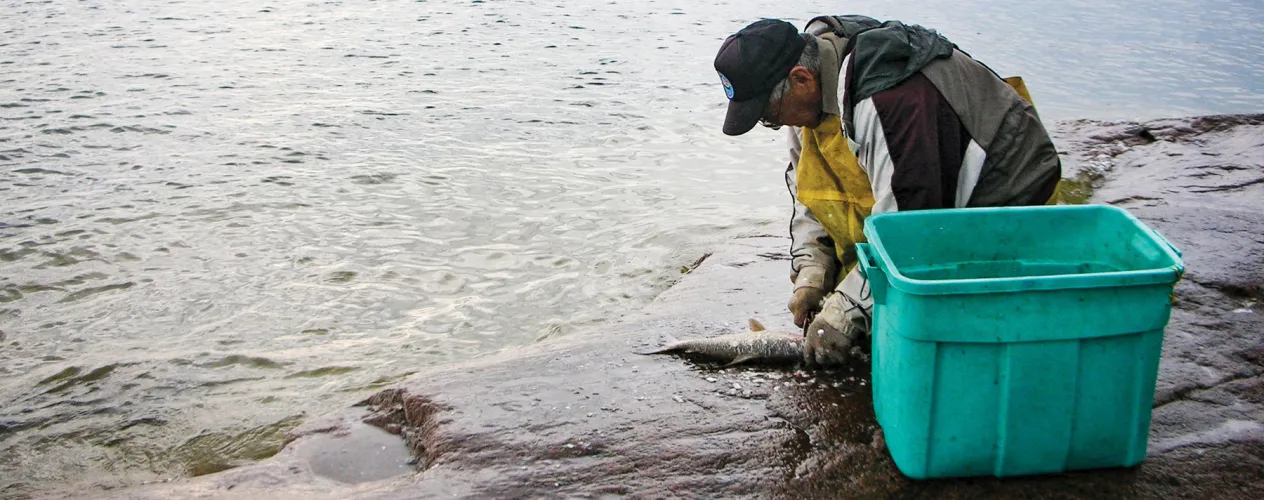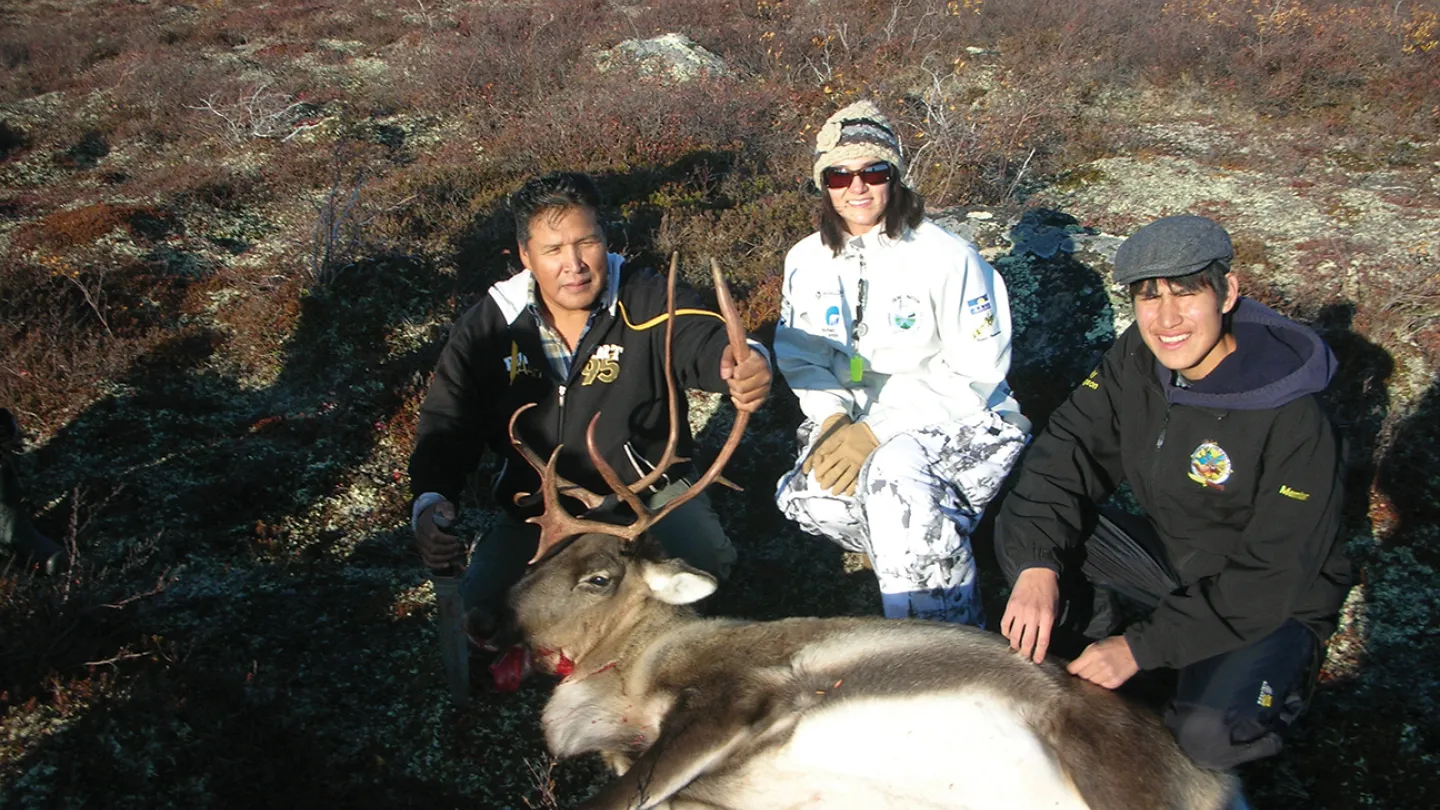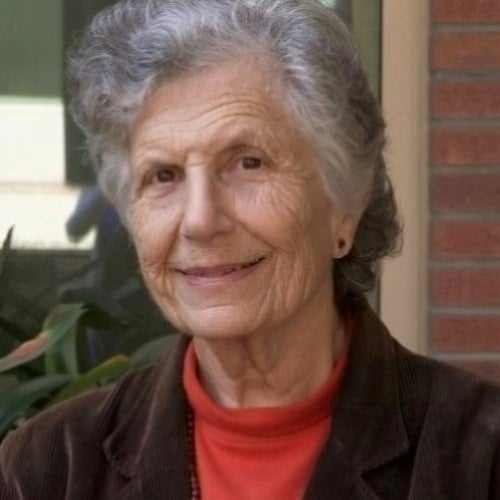Living Off the Changing Land
FSPH alum Nelida Duran explored the Arctic Region to discover how indigenous communities are adapting to climate change, and how globalization is encroaching on traditional ways of life.

AS A DOCTORAL STUDENT in the Fielding School’s Department of Community Health Sciences, Nelida Duran (PhD ’15) spent months at a time living with the Yellowknives Dene First Nation in the Northwest Territories of Canada. There, in a remote region bordering the Arctic, indigenous populations such as the Yellowknives rely on a traditional food system — hunting and harvesting animals and plants native to the land — as well as commercially available foods for their health, security and well-being.
“Indigenous peoples residing in the Arctic Region are experiencing major economic and cultural impacts, and are particularly vulnerable to climate change,” notes Duran, a registered dietitian who is now an assistant professor of family and consumer sciences at California State University, Northridge. “This is due to the influence of the Arctic’s natural resources on their economic and nutritional status, sociocultural identity, and spiritual and physical health.”
Traditional food systems and sources have already been disrupted in the region, creating volatility in daily nutrition intake and leading to less-secure livelihoods, particularly for communities that still depend on the land for sustenance, Duran explains. In order to better understand their lived experiences with climate change and its effect on nutrition and health, Duran, under the direction of her faculty adviser, Dr. Charlotte Neumann, collected data and conducted interviews with 14 Yellowknives who harvest and use traditional foods, such as caribou meat and stews, fresh fish and bannock. There was uniform agreement among participants that climate change is occurring, Duran says. All have observed changes in the land, water, fish, wildlife and plants, which have contributed to greater costs in both time and money to harvest traditional foods.
Indigenous peoples residing in the Arctic Region are experiencing major economic and cultural impacts, and are particularly vulnerable to climate change.
Duran found that warmer climates have brought new species into the Arctic Region, introduced more predators and insects, and led to a decline in caribou, the traditional hunting source for much of the population. The appearance of acid rain has also diminished plant populations that caribou eat, and has fueled worries of contaminated food. A diamond rush and booming mining industry have contributed to scarcer hunting grounds, the degradation of local lands and waters, and concerns over growing urbanization and economic development.
In her research, Duran focuses on the impact of global environmental change — which includes climate change and takes into account not only the loss of biodiversity and impaired functioning of the ecosystem, but also rapid lifestyle and cultural shifts — on population health in the region. Duran’s in-depth interviews with community members brought to light the tension many experience in trying to maintain their cultural identities and traditional ways of life in an ever-changing environment. And as climate change increasingly affects global food systems — for example, through the higher costs of whole foods, fruits and vegetables available in grocery stores — many in the Yellowknives community find themselves caught between two clashing worlds, both of them associated with mounting expenses and diminishing returns.
Duran believes her research provides an important perspective for health promoters and policymakers in the region. “Ultimately,” she says, “a wider body of knowledge about Arctic indigenous peoples’ food and nutrition systems contributes to policy and action to strengthen ecosystem sustainability, nutrition and health for the Yellowknives community and beyond.”

